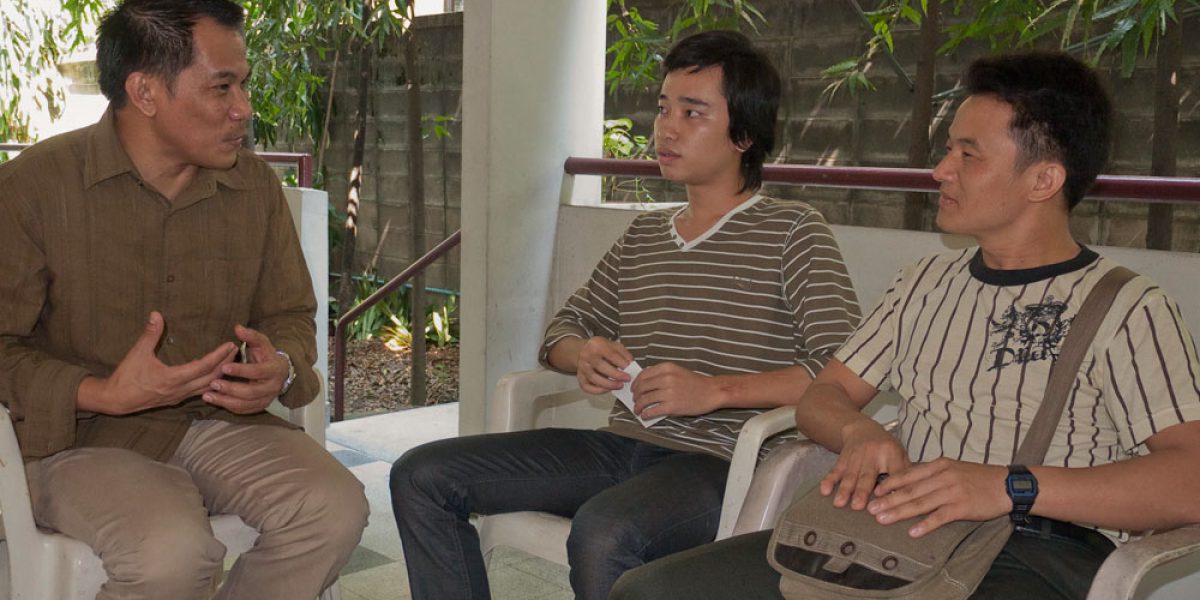Thailand: marginalisation in the metropolis
25 November 2013|Dylan Shepherdson

Bangkok, 25 November 2013 – The term ‘refugee’ still conjures up images of thousands of tents lined up side-by-side, yet most of the more than 40 million forcibly displaced persons around the world live in urban areas. Living in small, marginalised communities, ‘urban refugees’ are often ignored by local and international media. Crisis is not only the massive influx of refugees, but the day-to-day struggle of these almost ‘invisible’ people to survive in metropolises.
While significant progress has been made in reducing extreme poverty globally over the last 25 years, what first appears as success in the fight against poverty masks noteworthy variations: between countries, groups, and genders. Moreover, these statistics hide the fragility of many who survive just above the poverty line, but have little hope of escaping the socio-economic conditions which keep them poor. Urban refugees fall into all these categories of people.
The situation facing Thailand is typical of this duality. Falling poverty rates and increasing economic growth living side-by-side with marginalised communities: ethnic minorities, refugees and undocumented migrants, especially women and children.
Barriers to employment. Most urban refugees in Bangkok are not entitled to work legally. Even when they are recognised as refugees by the UN refugee agency (UNHCR), most lack the valid immigration documents that would enable them to work formally. This makes it very difficult for them to provide for themselves and their families.
Even when urban refugees are able to find employers willing to hire them informally, the pay is often insufficient to support a family. According to the Asia Pacific Refugee Rights Network (APRRN), participants at a national consultation, regarding the challenges and coping strategies for urban refugees in Bangkok in August this year, repeatedly emphasised the difficulties refugees and their families face accessing food, education and healthcare.
“Healthcare assistance is one of the more difficult obstacles to overcome in Bangkok. Many refugees have language problems at local Thai hospitals. Costs are extremely high at international hospitals that are more accessible and offer better services”, says Mr Anoop Sukumaran, APRRN Coordinator.
“While Thai food can be inexpensive and convenient, some refugees have religious requirements that are not easily met through a strictly Thai diet; this poses an additional financial burden on already tight resources”.
Similar barriers exist to education. Even though children are entitled to go to Thai schools, the reality is more nuanced. Not all schools are willing to accept foreign children. There are also hidden costs. This may not be extreme poverty by UN definitions; but it makes raising a family or building a future extremely difficult.
Complexities of poverty. Estimates of poverty take a snapshot of how people are living at a particular moment. They often exclude immeasurable goods.
“A lot of the urban refugees and asylum seekers are extremely desperate. I’ve met so many and heard their stories of extreme financial pressure and how they have been forced into doing risky and precarious jobs to try and pay for basic goods and survival needs”, says Mr Rufino Seva, former Urban Refugee Programme Director for JRS Thailand.
Official statistics measure incomes and access to services. They do not take into account the fear felt by refugees undertaking dangerous jobs. Nor do they measure their fear of arrest, detention or deportation. It is equally difficult to capture the exclusion felt by refugees unable to communicate with their new hosts. None of these factors are caused by poverty, but are certainly aggravated by it.
Legal rights form the basis of international protection sought by refugees; refugees need more to rebuild their lives, they need to be included. One would expect the first step would be to incorporate refugees into national targets under the UN Millennium Development Goals. Unfortunately, according to UNHCR in Thailand, there is little indication that refugees will attain the right to access the formal labour market in the near future.
While much effort has been made to help millions escape poverty throughout the world, small numbers of people who have been through so much are still overlooked.


